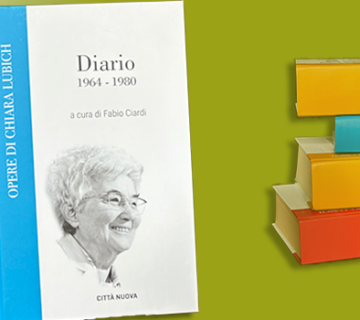
After thanking for having been awarded the prestigious prize to the Focolare Movement “an instrument for bringing about unity and peace on our planet, as well as many other excellent and valuable organizations, initiatives and projects,” Chiara Lubich outlined the Spirituality of unity:
This lies in the new way of life it proposes, a new lifestyle adopted by millions of people. It is inspired by profound Christian principles, while also emphasizing parallel values present in other faiths and cultures. In actuality, it has brought to this world of ours—which needs to find or secure peace—precisely peace and unity.
I’m speaking of a new spirituality that is both timely and up-to-date: the spirituality of unity.
It is deeply rooted in certain phrases from the Gospel, phrases that are interlinked.
I will cite only a few here.
Those who share the spirituality of unity also share a profound understanding of the essence of God: God is Love, he is a Father.
In fact, how would it be possible to imagine peace and unity in the world without a vision of humanity as one family? And how can it be seen as such without the presence of one father?
There is the call to open one’s heart to God the Father who certainly does not abandon his children to their own destiny, but who wants to accompany, protect and help them. He knows the depths of every person; he follows each one in particular, counting even the hairs on one’s head. He does not place burdens on their shoulders without being the first to carry them.
He does not leave the renewal of society solely to the initiatives of men and women, but he takes care of it.

To believe in his love, this is what this new spirituality requires, to believe that we are personally and immensely loved by God.
To believe.
Believing and choosing him as the Ideal of one’s life from among the countless possibilities offered by our existence is equivalent to intelligently taking on the attitude which everyone will assume at the point of reaching the final destiny: eternity.
Clearly, it is not enough to believe in God’s love; it is not enough to have made this great choice ofhim as our Ideal. The presence and loving care of the Father of all calls each one to be a daughter or ason, loving the Father in return and living out day by day the Father’s loving plan for one’s life, that is, to carry out his will.
And we know that a father’s first desire is for the children to treat each other as brothers and sisters, to care for and to love one another. They should know and practice what can be described as the art of loving.
He wants us to take the initiative in loving without waiting for the other person to love us first.
This art of loving means that we love each one as ourselves, because “You and I,” Gandhi said, “are one. I cannot hurt you without wounding myself.”
He wants us to be the first to love, without expecting the other to love us back.
It means knowing how to “make ourselves one” with others, that is to identify with their burdens, their thoughts, their sufferings and their joys.
If this love for the others is lived together, it becomes mutual.
And Christ, the Father’s Son par excellence, Brother of all, has left a norm for humanity: reciprocal love. He knew how necessary it was so that there might be peace and unity in the world, so that there might be one family.
Certainly today, whoever attempts to shift the mountains of hate and violence faces a huge and heavy task. But what is beyond the strength of a million isolated and separate people appears possible to those who have made reciprocal love, mutual understanding and unity the motivating force of their lives.”
More: Centro Chiara Lubich


 Italiano
Italiano Español
Español Français
Français Português
Português



No comment